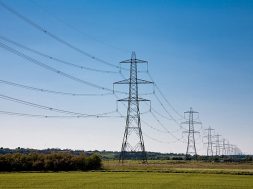
EU leaders agree to fast-tracked deal on power reforms – EQ Mag
EU leaders want to see power market design reforms intended to mitigate volatile prices agreed this year, they said after discussing the bloc’s energy situation at a summit in Brussels late on Thursday.
They also urged companies to make “full use” of the EU’s joint gas buying option through the new Aggregate EU Platform to help ensure secure supplies at affordable prices.
They noted that the EU’s energy situation had improved since the bloc’s decision last year to reduce its gas demand and phase out its dependency on Russian fossil fuels after the war in Ukraine prompted a dramatic drop in Russian gas supplies.
However, they called on the European Commission and national governments to make sure the EU’s gas storage facilities were refilled over the summer ready for next winter, and to also have contingency plans in place.
They also invited the EC to quickly finish assessing the emergency measures adopted last year in response to the energy crisis and where needed to propose extending them.
The EC has already proposed extending last year’s emergency goal to cut EU gas demand by 15% this winter to March 2024.
EU energy ministers are due to discuss this on Tuesday.
Market design reform
Meanwhile EU lawmakers have said they want to fast-track the EC’s power market design reform proposals through the legislative approval process given their importance.
The debate would focus on ensuring the market design could withstand “extreme stresses during crises” while keeping the elements that already worked well, Swedish energy minister Ebba Busch said after the EC published its proposals on 14 March.
Many market participants were relieved that the EC did not propose changing marginal pricing in its reforms, but experts told Montel in a podcast this week that the EC’s plans for virtual trading hubs would be challenging to implement.
EU energy ministers, the European Parliament and the EC must agree on a common text before the reforms can become binding.
This process usually takes at least 18 months, but lawmakers have shown in the last year that they can agree energy legislation in a matter of months if they consider it urgent.















